Society’s Children | Interview | Unique 60s Psych Gets Vinyl Reissue
Society’s Children was a unique mother and son duo of Doreen and Patrick Sassone from Lansing, Illinois formed in 1968.
Doreen was the lead vocalist. Patrick played guitar and keyboard, while also writing the original material. Shortly after forming the group, they had an opportunity to record for a small independent label. On December 13th 1968 they recorded the songs ‘Mister Genie Man’ and ‘Slipping Away,’ along with four other tracks, at the Columbia Studios in Chicago. The record was well played on regional radio stations.
Through the years many other songs were written, recorded, but never released. During this period ‘Listen’ and ‘I Don’t Wanna See Tomorrow’ were recorded at Palos Studios. Along the way, Patrick and Doreen had the opportunity to meet the great Curtis Mayfield, Phil and Leonard Chess (founders of Chess Records), and The Buckinghams.
Society’s Children performed at numerous nightclubs, dances and parties until they disbanded in 1977. Patrick continues to write and record to this day. Sadly, Doreen passed away in 2017. She loved singing and always cherished those early days of Society’s Children.
It seems like a mystery that it took over 50 years until these outstanding recordings were finally released thanks to World In Sound who is now issuing recordings from 1968-1974. The material was recorded at Columbia Studios, Palos Records and Home Studio. It’s available on 180g vinyl with a bonus CD or just on CD.
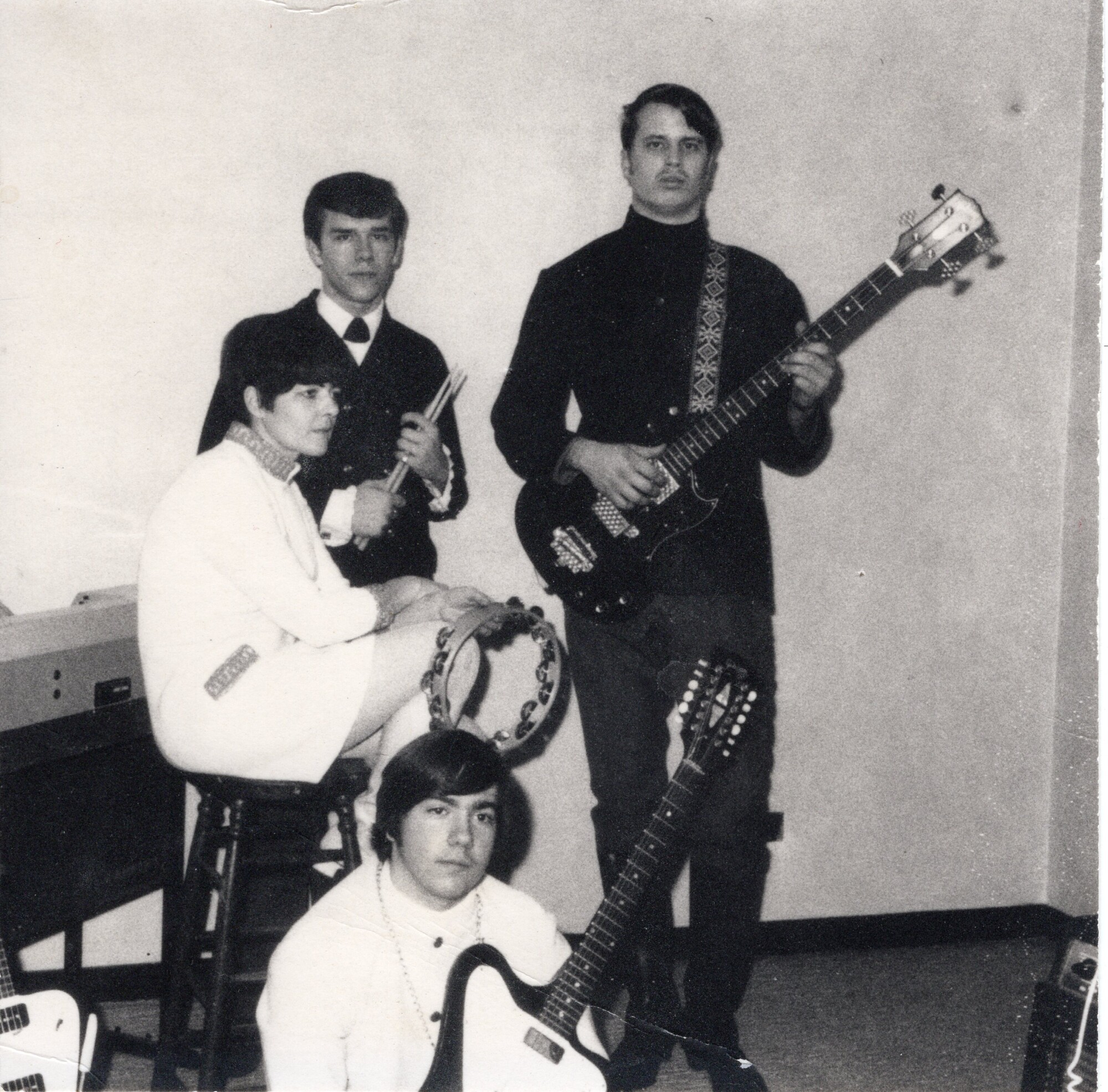
“We were only seventeen, and this was a rock and roll dream for us”
You are coming from a musical family. Tell us what it was like growing up? What kind of music did your parents enjoy and to what degree were you influenced by it?
Patrick Sassone: My early years were always filled with music. My parents always watched variety shows hosted by singers such as Dean Martin, Perry Como, and Andy Williams, to name a few. Of course, 1950s rock and roll was also part of the mix. My mother would always sing around the house as she went about her day. As I grew older, we also listened to folk music and rock groups coming out of England. In the U.S.A., it was called the British Music Invasion. All of this music greatly influenced me, especially in my songwriting.
Where were you growing up? What was the scene there?
I was born in Blue Island, Illinois, which bordered Chicago’s southside. At eight years of age, we moved to Lansing, Illinois. As a teenager, I began to notice many neighborhood rock bands. Many of these were called garage bands because they often rehearsed in a garage. They would open the large garage door when the weather was warm and perform for the neighborhood. My first group was one of these. Teen dances became very popular, as well as contests called “The Battle of the Bands.”
When did you begin playing music? What was your first instrument?
I began music lessons on the accordion at age five. Door-to-door salesmen would come through your neighborhood selling music lessons. The one that came to our door had an accordion, so that’s where I started! I quit the accordion at thirteen and taught myself to play the guitar.
What bands were you a member of prior to the formation of Society’s Children?
My first band was called “Patrick and the Shamrocks.” Besides myself, it included two cousins and a schoolmate. I was fourteen at the time. That is when I wrote my first songs, and we recorded a 45 record at Orlyn studios in Chicago, Illinois. We performed at numerous dances, parties, and holiday events. Several members came and went, and the group and I ultimately split. I then joined with two brothers and a friend of theirs and first used the name Society’s Children, which my mother had suggested. This group disbanded very shortly after.
Can you elaborate on the formation of Society’s Children that you formed with your mother.
My mother and I put together a new Society’s Children by adding a classmate of mine on drums and a new bass player we found after placing an ad. We began to rehearse. After a couple of gigs, the drummer left. We added a new drummer and started again.
That was quite unusual at the time for a rock band, what led to this idea? Who were other members of the band?
The idea for my mother and I to form a new band was basically because of two things. First, I was so tired of trying to keep band members together long enough to make a name for ourselves, and second, my mother could really sing and wanted to perform. Besides my mother and I, this band included John Kolada on bass and Fred Sudlow on drums. This was the lineup that recorded ‘Mister Genie Man’ and five other songs. Unfortunately, after a short time, Fred Sudlow left the group to join the military. After that, it was a revolving door for drummers, but John Kolada stayed for many years.
Did you play a lot of gigs? Tell us about some of the early ones.
We played out a lot. We played nightclubs, bars, private parties, teen and adult dances, holiday events, hotel lounges, and even weddings.
How did you decide to use the name “Society’s Children?”
The name “Society’s Children” was suggested by my mother, Doreen, and we liked it.
You were the main songwriter in the group. Would you like to tell us about your songwriting process? What makes a good song in your opinion?
I was the only songwriter in the group, and my mother would occasionally help with lyrics. My songwriting process is the same now as it was the first time I wrote a song. I would sit down with my acoustic guitar and practice. From that, I often had an idea for a particular chord change or a guitar lick and would progress from there. The music would naturally all come together, and I would have the basic music and melody. I would later work on an arrangement and rework certain parts. I always let it flow from my emotions and feelings at the time. This became my lifelong process. I would find a theme for the lyrics that fit the mood and sound of the music and then begin the process of telling a story I wanted to convey. Everyone has different tastes in music, but for me, a good song stirs an emotion, tells a story, and makes you feel what it is trying to say. It needs verses that flow and a chorus that brings the whole song together. I find this important, no matter the genre.
You were signed to Cha Cha Records. What can you tell us about this record company from Chicago?
Actually, I know very little about Cha Cha Records. We had been advertising for a manager and received a call from Mr. Delucia. My mother, Doreen, handled the call and set up an audition. We played some original music for him. He called us a couple of days later and said he wanted to promote our work, but we had to pay for the studio costs. Being young, we did it. The record played on numerous independent radio stations in the Midwest, and that was it. We could never contact him again at the phone number we had, we had no idea where he lived, we never received any promised royalty payments for record sales, and we never heard from him again. This was very commonplace back then for young groups like ours. Luckily for us, my mother and I paid the studio fees and insisted on ownership and control of the studio four-track tapes and the master.
In 1968 you released ‘Mister Genie Man / Slippin’ Away’ 45. What’s the story behind the single? Where was it recorded? Who was the producer?
On December 13th, 1968, we recorded six original songs at Columbia Records Studios in Chicago, Illinois, U.S.A. ‘Mister Genie Man’ and ‘Slippin’ Away’ were chosen for the 45 record. The group produced the recording together, and Cha Cha Records released it.

What were the songs about?
‘Mister Genie Man’ is basically about someone having a terrible nightmare, and when they ask for help, a genie appears in their dream. ‘Slippin’ Away’ is about a bad relationship, and the girl is leaving it all behind her.
Maybe a bit of an odd question, but since you were part of the counterculture with your mother, have you ever experimented with psychedelics et cetera?
No, no one in the group ever did. We were really all about the music.
World In Sound Records will issue 40+ minutes of unreleased material. Was there a plan to release an album back then with the song that will appear on the upcoming release?
No album was ever planned. We kept recording when we could and hoped it would lead to a record deal, but it never happened.
Where was the material recorded?
Four of the unreleased songs were recorded at the same time as ‘Mister Genie Man’ and ‘Slippin’ Away’ at the Columbia Studios in Chicago, ‘Listen’ and ‘I Don’t Wanna See Tomorrow’ were recorded at Palos Records in Chicago. The rest were recorded at a home studio also located in Chicago.
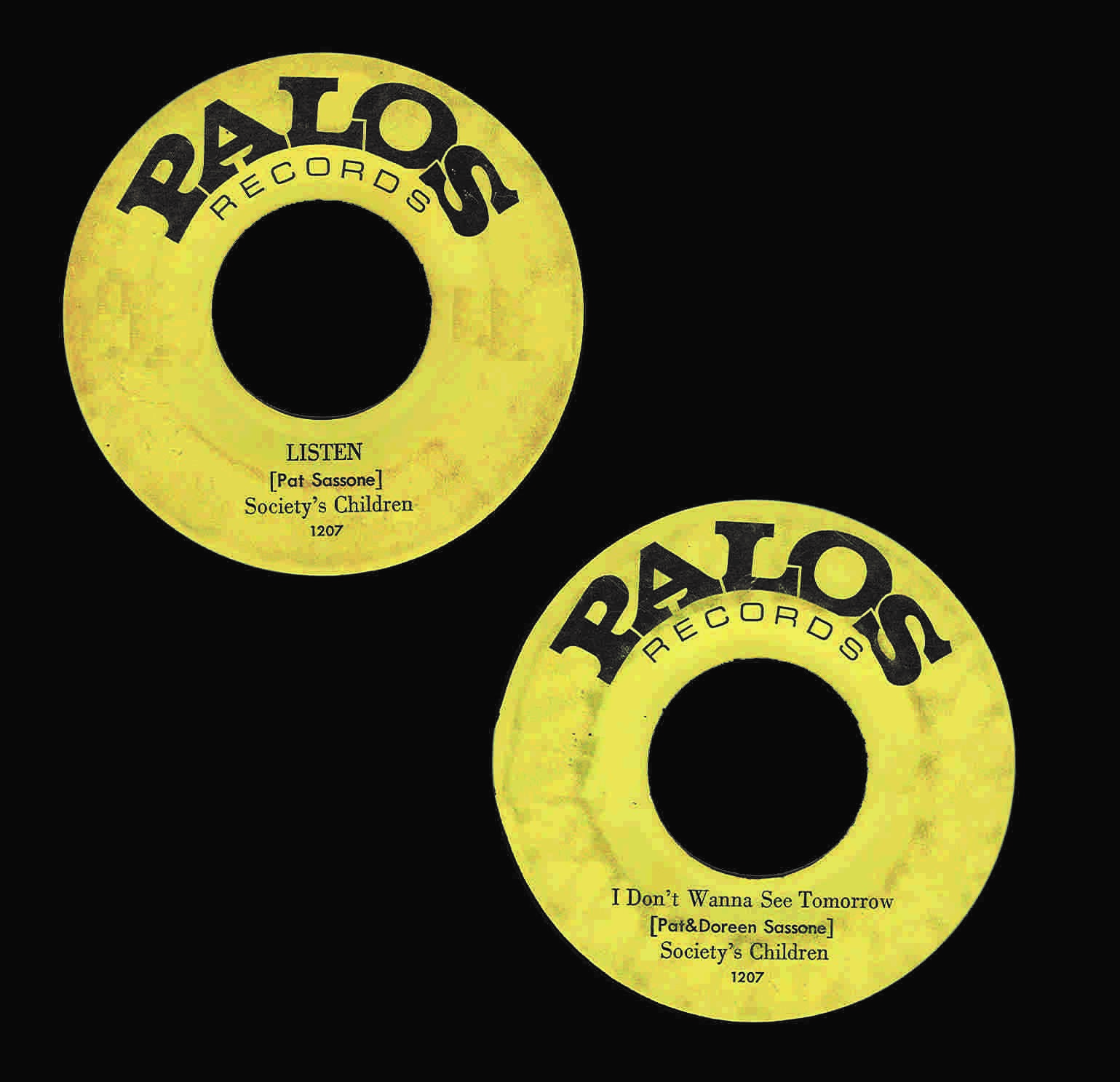
“The sessions at Columbia were very exciting”
Please share your recollections of the sessions. What were the influences and inspirations for the songs recorded?
The sessions at Columbia were very exciting. None of us had ever experienced anything like that, including my mother. John, Fred, and I were only seventeen, and this was a rock and roll dream for us. The other sessions were years later, and we were much more relaxed by then. We always enjoyed making music together, so we handled it in a more light-hearted manner. Inspiration came from the combined influences of our musical tastes and our different experiences.
Would you share your insight on the albums’ tracks?
The songs reflect good times, bad times, struggles with our music careers and life in general. The songs ranged over a period of about eight years, and during that period, music styles changed, groups changed, and we all changed. You can hear some of those changes in the music.
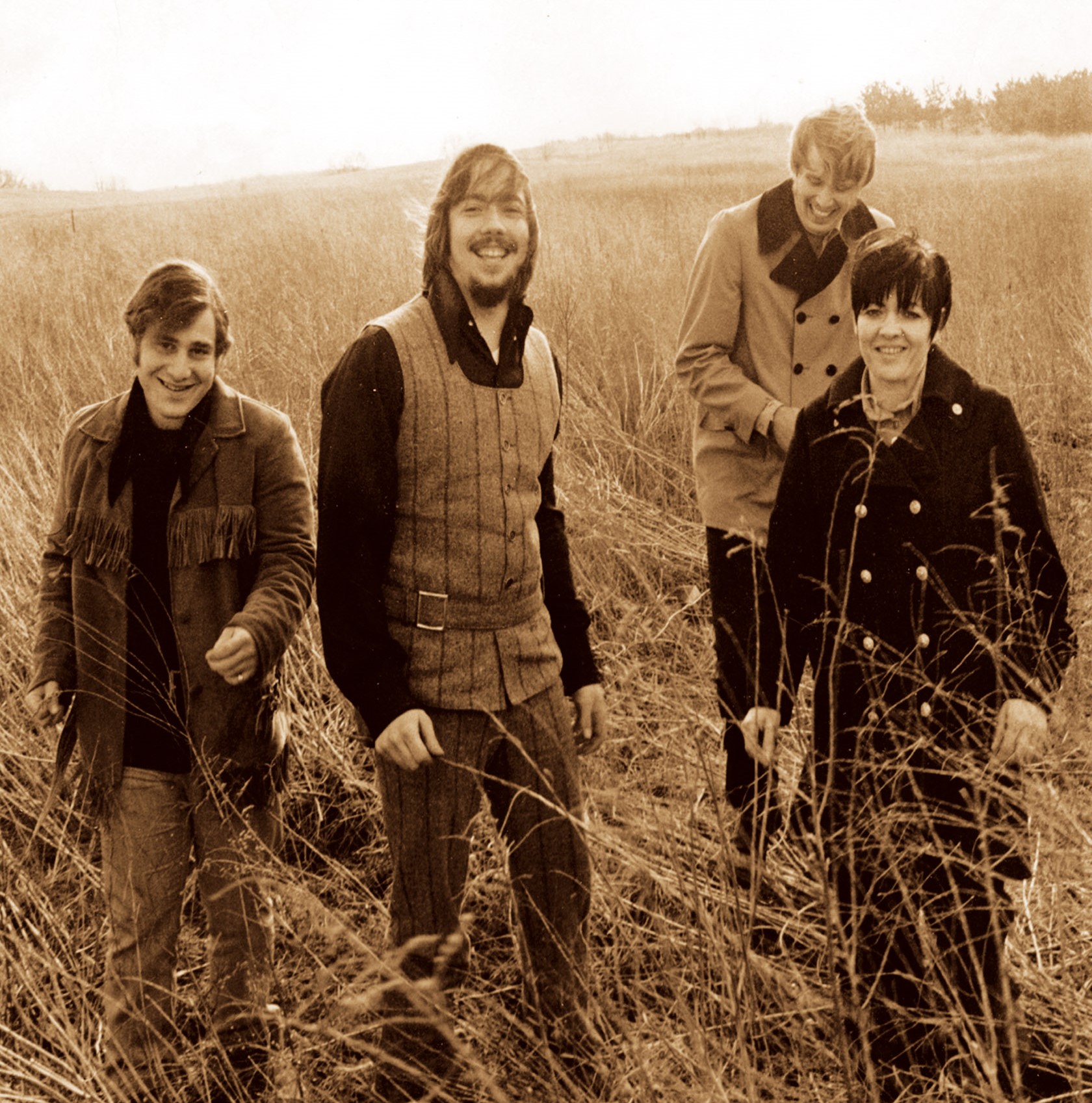
Was there a certain concept behind your music?
There is no particular concept other than reintroducing Society’s Children to a younger audience and having the songs that were left behind finally able to be heard.
What would be the craziest gig you ever played?
We played several crazy gigs, but the one I think is the craziest happened at an Airforce base about 130 miles south of Chicago, Illinois. We were booked to play for a very large group of new trainees. We began our first set, and everything went great. The band was really on, and the crowd was really into the music. We were having a great time. After our break and shortly into our second set, two girls approached the stage and started dancing with one on each side. We didn’t think much of it and figured that was all they were going to do. After a couple of minutes, we saw that they were actually stripping, so I quickly told everyone that after the current song, stop and head toward the front entrance. As we got to the front entrance, the Officer in charge approached us, and I immediately told him this was not what we had agreed to play for and that it was embarrassing to my mother, as well as the rest of the band. He quickly apologized and told us that he did not arrange for the dancers and didn’t know who did. I told him that it was either the strippers or us. He said the girls would be removed because the trainees wanted us to stay. So, we went back on stage and finished the set. We had a great third set that ended with a standing ovation for us.
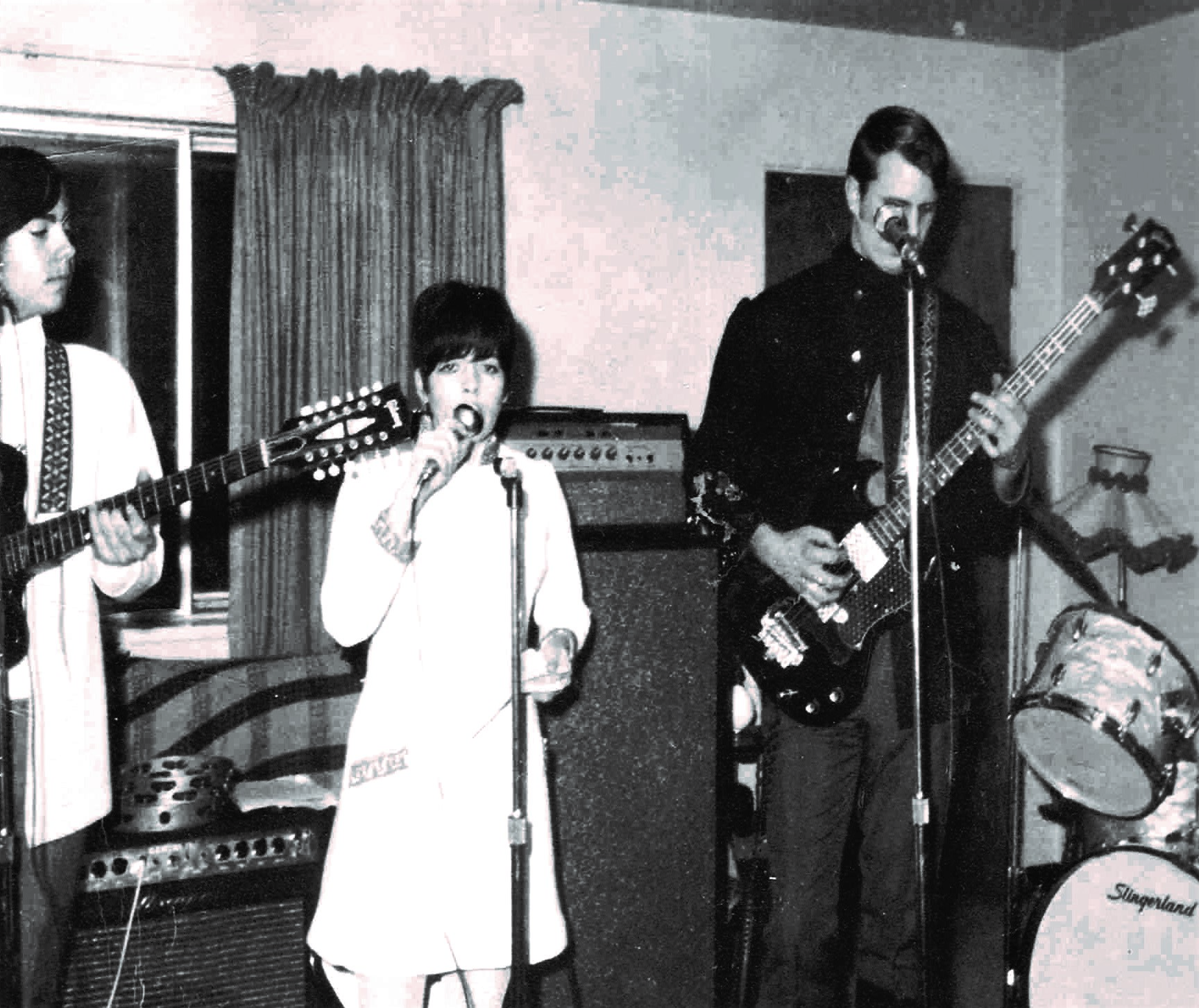
What kind of gear did you have in the band? Tell us about the effects, pedals, amplifiers et cetera.
I had been using a Gibson Firebird electric twelve-string with an Ampeg amplifier for about two years before we recorded Mister Genie Man. I ultimately added a Fuzztone distortion box and a Cry Baby wah-wah pedal. In 1970, I bought a Gibson SG Standard with the tremolo bar and used that predominantly. I also used a Farfisa organ. John, the bassist, used a Gibson SG styled bass with an Ampeg amplifier. In 1973 we both switched amps and went with a brand called “Earth.” I don’t recall the brands of the drums that were used. We had about eight different drummers from 1968 through 1977. We used Shure microphones with an Altec-Lansing sound system.
What are some of the most important players that influenced your own style and what in particular did they employ in their playing that you liked?
I already had a musical background when I first started to learn the guitar. Because I liked folk music and the new mid-60s rock, I was influenced by the groups at that time and not so much by the individual guitar players. Once I taught myself the basics of the guitar, I focused on learning some of my favorite songs by listening to 45 records. I would listen to the record and pick out its primary key, the chords that were used, and the changes in the arrangement. I would then play along with the record and sing with it to learn the lyrics. Because of how I learned the songs, I was influenced by every song I learned. Even years later, with Society’s Children, when we wanted to learn new cover songs, I would use this same system. Because of all the different songs and rifts I learned along the way, hundreds of musicians have influenced me.
“Music sets my soul free”
What happened after the band stopped? Were you still in touch with other members? Is any member still involved with the music?
In 1976, my family planned a big move. We planned to move from Illinois to California, over 2000 miles away. That was the year that the Chicago version of the band ended. Afer arriving in California, we put together another band, which lasted only a few months. We soon moved to Arizona and tried again, but we had trouble keeping musicians. In 1977 the band ended for good. We lost touch with the other members, and I have no idea what they are doing today.
Is there still any unreleased material available, maybe some solo projects or anything else?
In the early 70s, the band did record a rock-gospel album, but it was never released. In 1989 I alone completed a Christian rock album that was also never released.
Looking back, what was the highlight of your time in the band? Which songs are you most proud of? Where and when was your most memorable gig?
Everytime the band performed was a highlight for me. It was awesome to perform and share the music with my mother, who loved it as much as I did. The bud always rocked, it was always fun, and it was always about the music. The songs I am most proud of are ‘Mister Genie Man,’ ‘I Am A Minstrel,’ ‘Help,’ and ‘Darkness’. My most memorable gig with Society’s Children was in 1968 at a small nightclub on the south side of Chicago. It was the first time we booked a nightclub, and they liked us so much they wanted us back. This gig started it all.
What currently occupies your life?
As far as music goes, I never stopped writing and performing solo whenever I could. I have been recording and self-releasing new material since 2010. From 2010 to 2020, I released numerous solo blues albums and two country albums, but it started to become too mechanical. I wanted to write the way I always did when I was young. I wanted to let the music in me decide what to write. Since 2021 I have self-released three solo rock albums, am currently preparing two more, and enjoying writing again. The biggest and best part of my life is my family, which I could never live without. They give me reason, purpose, support, and all the love I could ever want, and I try every day to return all of that to them.
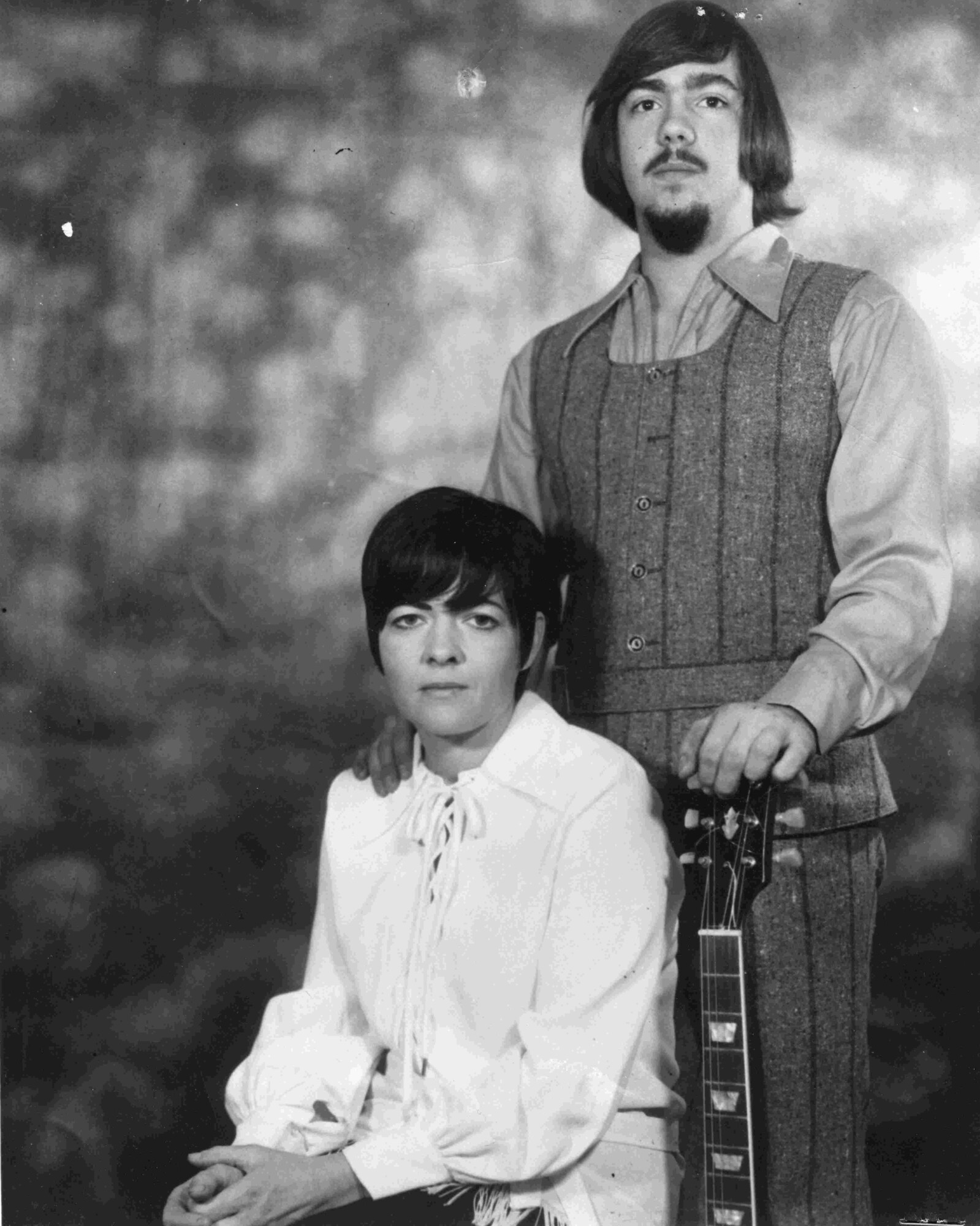
Thank you for taking your time. Last word is yours.
During my early days, music was always my best friend, and through my darker days, when I tried to stop, it would never let me. It was always there and continues to this day. A liner note I wrote for one of my past solo albums says it all: “Music sets my soul free … To hope, to dream, to just be me.”
Klemen Breznikar
Society’s Children Facebook / Bandcamp
World In Sound Official Website / Facebook / Instagram / Bandcamp

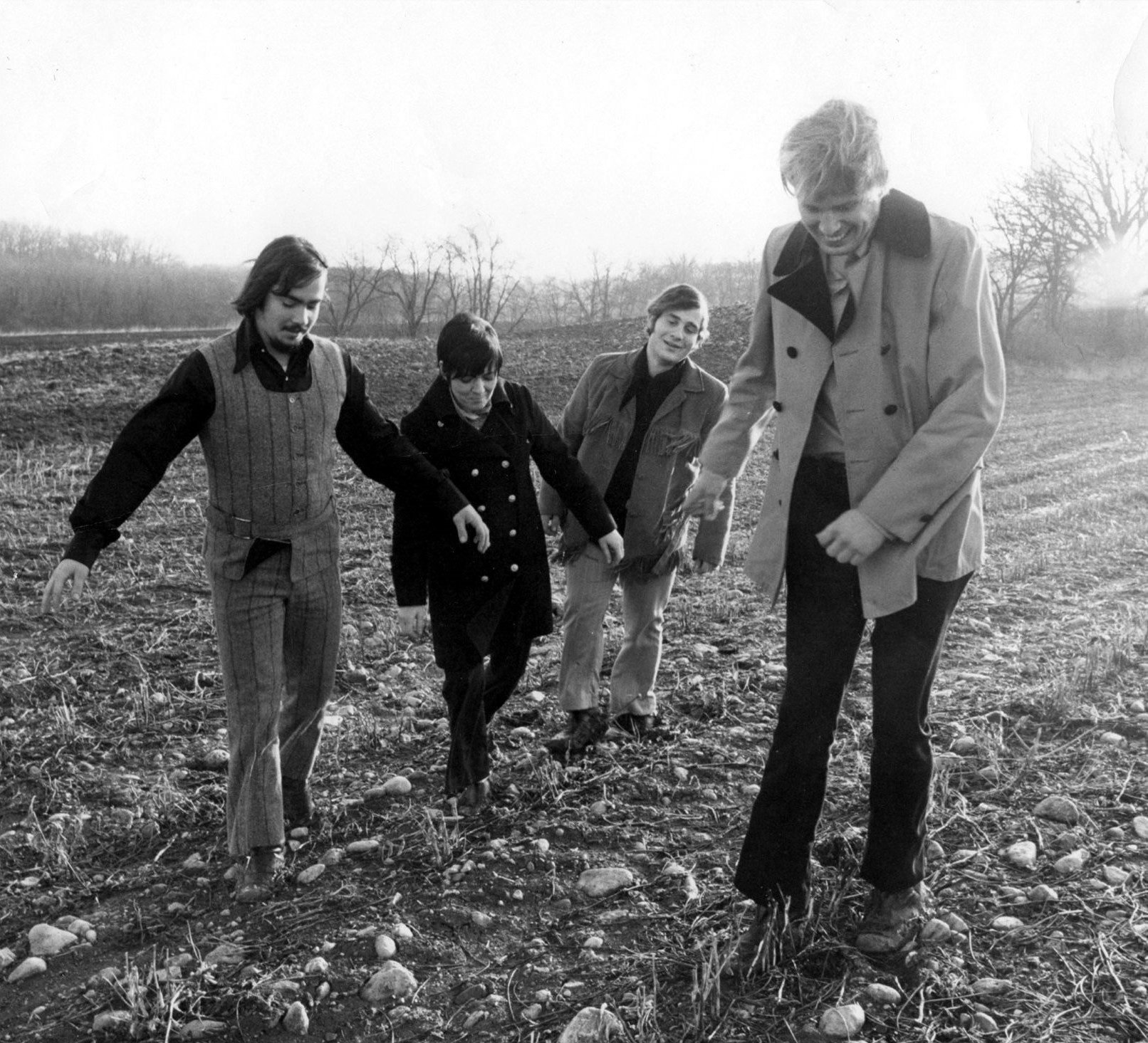
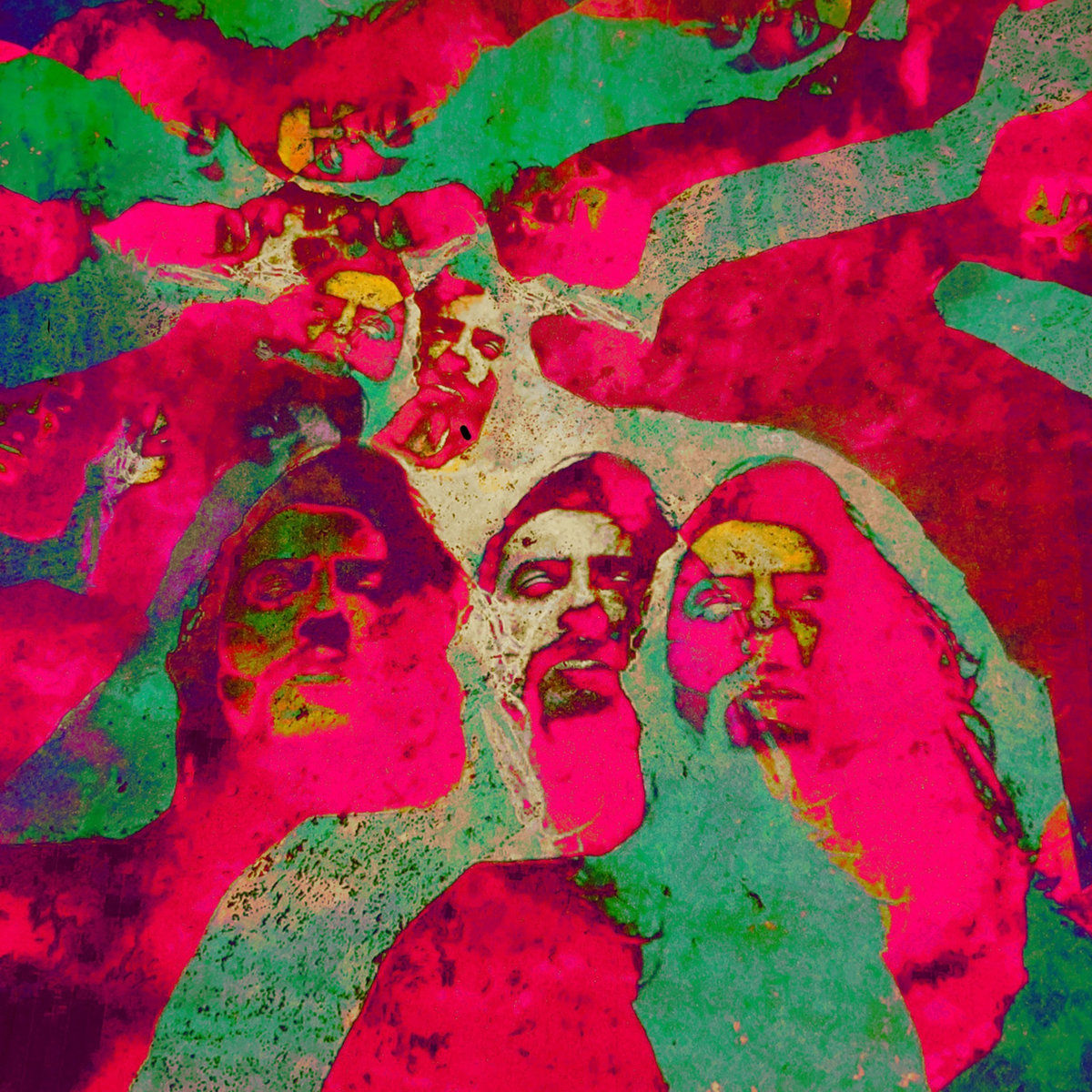
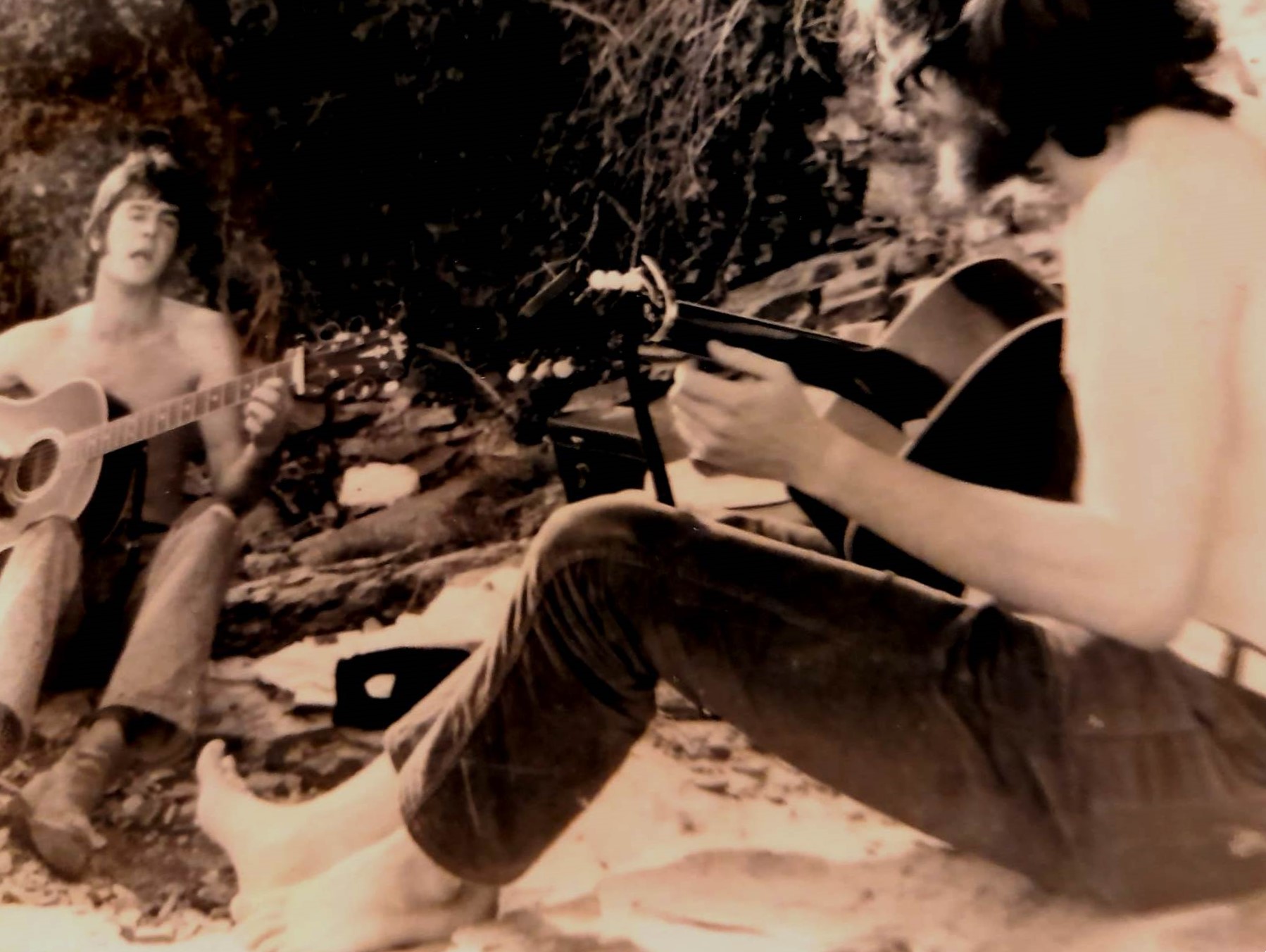

Thank you !